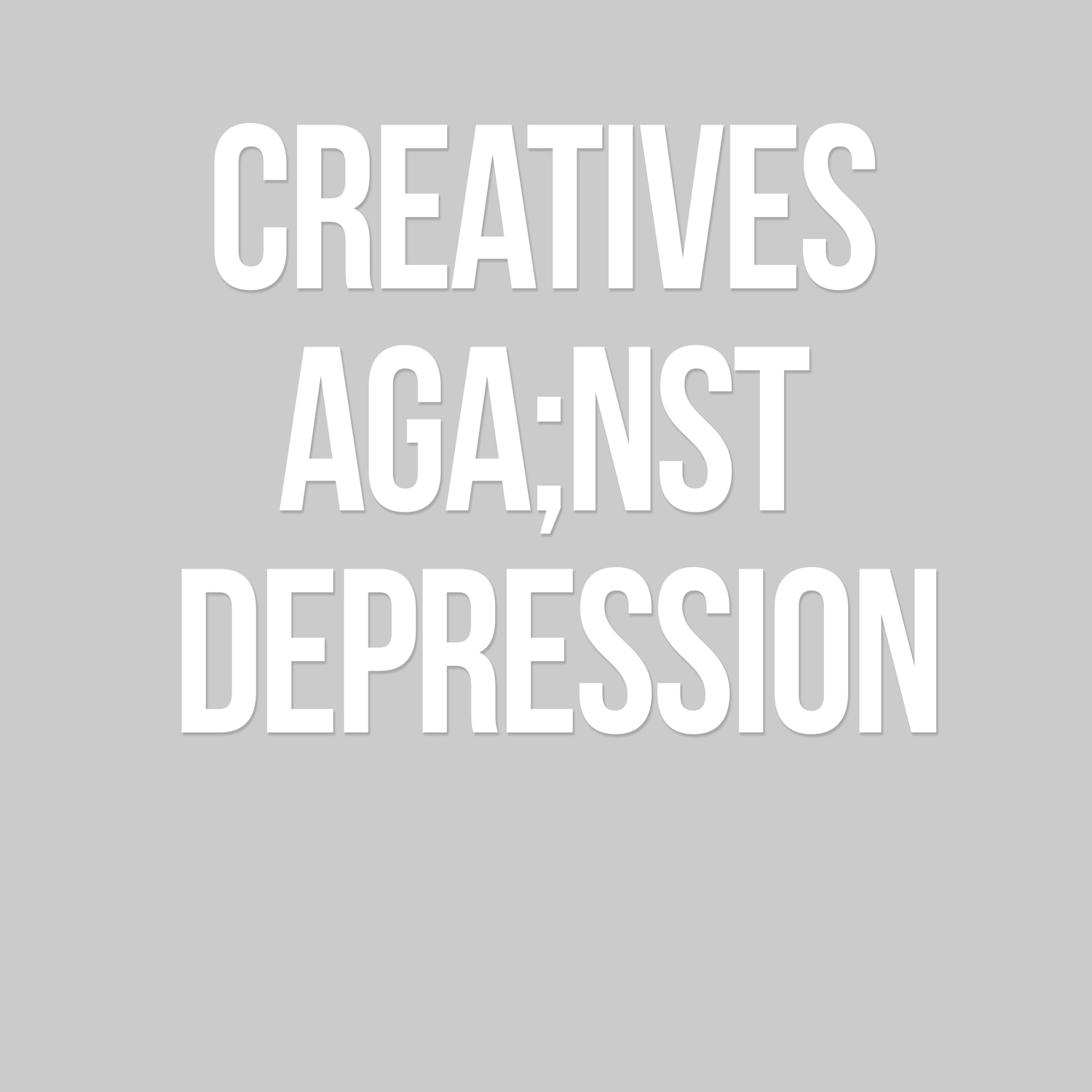Here at Creatives Against Depression, we are always looking out for advocates, causes, and organizations that help spread positivity and reduce mental health and addiction stigma within the U.S. The following articles helps shed some light on organization and causes that are doing just that.
If you have an organization or group you think we should feature, please don’t hesitate to reach out using our Contact Form.
As challenges continue to rise across the country and globe in 2022, many individuals’ mental health is taking a toll. According to the National Alliance on Mental Illness (NAMI) in 2020, 1 in 5 people experienced a mental illness, and 4.9 million of those people were unable to access needed care. These numbers have skyrocketed due to the COVID-19 pandemic, and are amplified among PoC, the LGBTQ+ community, and underserved minority communities.
Our non-profit, Rise Above The Disorder (RAD), is a 501(c)(3) non-profit dedicated to making mental health care accessible to all. Founded in 2013 from a World of Warcraft Guild, we evolved into Anxiety Gaming, and then into Rise Above The Disorder (RAD).
We are a small group of social workers and business team who carry out free-of-charge case management and advocacy work to help connect clients with therapists that best match their needs. Our non-profit is based in Los Angeles, California, however, we work with clients across the globe.
Our mission at RAD is to eliminate the two greatest barriers to mental health treatment: access and cost. We remove these barriers using our Therapist Finder Program and Grant Program. Our Therapist Finder Program is for individuals who have access to insurance, universal healthcare, or a budget that they can utilize for therapy. We help these individuals find a therapist that best matches their needs, personality, and approach they are looking for. Our Grant Program is reserved for those who don’t have access to insurance or the means to afford therapy. We help them find a therapist that matches their needs, and cover the cost of therapy for them for a temporary period of time, ranging from 3-6 months in total.
How Do I Apply for RAD?
All are welcome to apply to our program—youarerad.org/therapy . All you need to do is scroll down to the button that says “Start Therapy Form” and the form will ask for your name and email address, which will take you to our intake form so we can learn more about you and what you’re looking for! Once you have completed the form, you will be added to our wait-list where one of our social workers will pick up your case in around 1-14 days.
What is the Therapist Finder Program?
Our Therapist Finder Program is for individuals who have access to insurance, universal healthcare, or a budget that they can utilize for therapy. We help these individuals find a therapist that best matches their needs, personality, and approach they are looking for.
What is the Grant Program?
Our Grant Program is reserved for those who don’t have access to insurance or the means to afford therapy. We help them find a therapist that matches their needs, and cover the cost of therapy for them for a temporary period of time, ranging from 3-6 months in total.
Who Can Apply?
Our programs are open to all people, of all ages, all backgrounds, across all nations. For those presently unable to afford mental health care, we will work with you to verify financial hardship and use donations to cover the cost of mental health care.
How Much Is Therapy?
For those looking at our therapist finder, you'll want to budget at least $50 per week. Anyone unable to afford $50 per week will instead have the cost covered by RAD. For reference, the average cost of therapy is $120 a session, with most people going to therapy once per week.
Does RAD Cover Residential Treatment?
We don't presently offer coverage for residential treatment. Our team is working towards covering residential treatment in the future.
How Can I Get Involved with RAD?
We always love building the RAD community! Feel free to check out our website (youarerad.org) as well as our Instagram (instagram.com/riseabovethedisorder), Twitter (twitter.com/YouAreRAD), and Twitch (twitch.tv/youarerad) to gather more information and learn more about mental health as a whole and to stay updated on all our upcoming events.
Additionally, if you feel called to donate, you are welcome to check out our donation page—youarerad.org/donate.





